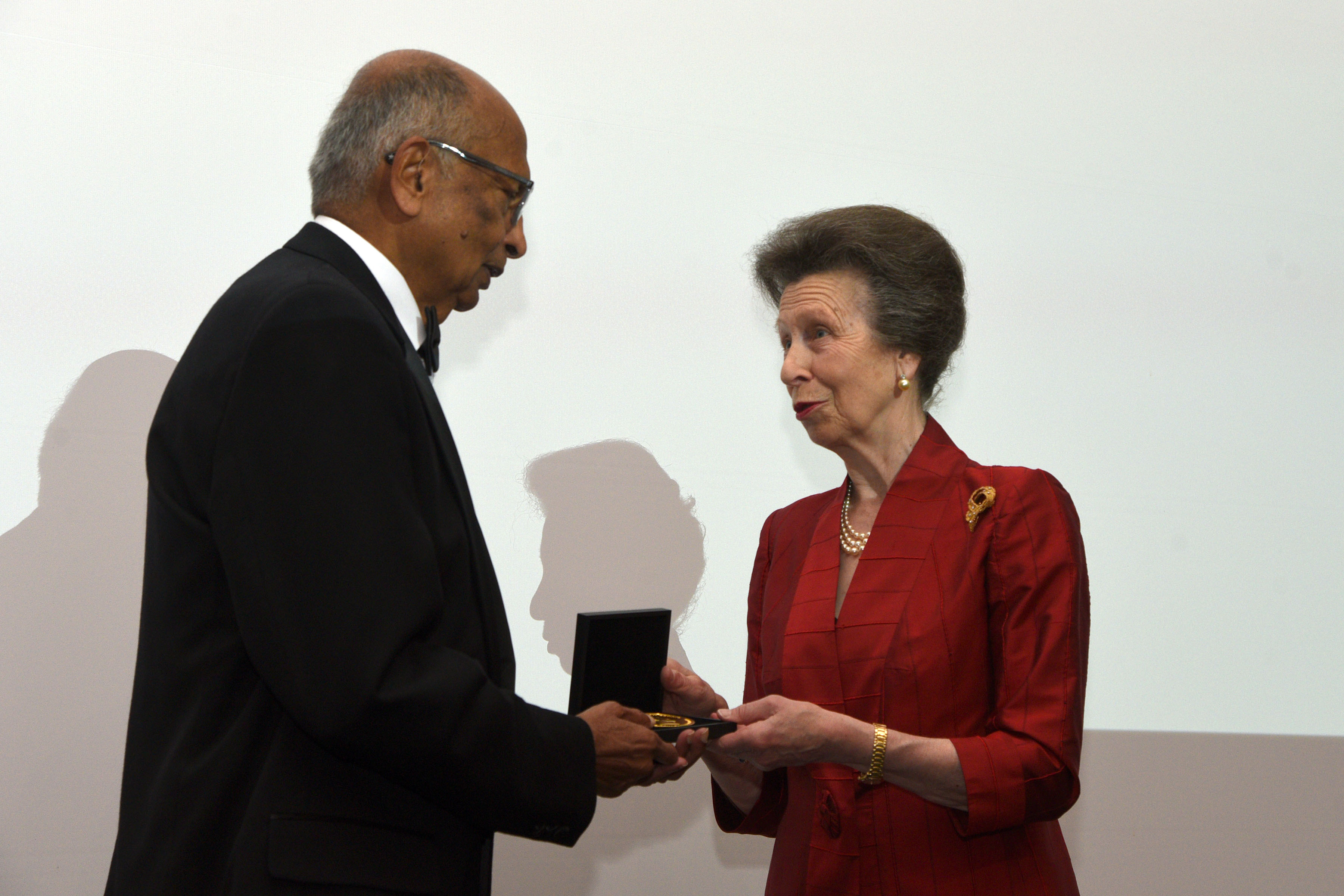This medal was commissioned by HRH The Prince Philip Duke of Edinburgh KG KT, Senior Fellow of the Royal Academy of Engineering, for exceptional contributions to engineering through practice, management or education.
The medal is awarded biennially to an engineer of any nationality who has made an exceptional contribution to engineering as a whole through practice, management or education.
This medal was commissioned by the Senior Fellow Prince Philip, who was instrumental in the establishment of the Royal Academy of Engineering.
2024 winner
Dr Arogyaswami J Paulraj
The 2024 Prince Philip Medal recognizes Dr Paulraj’s invention and commercialisation of Multiple-Input, Multiple-Output (MIMO) wireless technology, the core enabler of 4G, 5G mobile, and Wi-Fi networks.
Today, more than 6.5 billion smartphone users around the world benefit from MIMO-powered wireless networks, and 75% of global internet access is via wireless. The technology has accelerated the growth of the digital economy, which currently accounts for 10% of GDP in advanced economies and is expected to surge to 40% within the next three decades. Estimates place the global economic value of wireless networks at over $7.5 trillion annually.
India has more than 1.1 billion 4G/5G subscribers. Entry-level smart phones selling for less than $90 and affordable low-cost access charges have allowed all economic levels in India to access the growing digital public infrastructure. Wireless internet enabled by MIMO technology is now an important catalyst for India’s economic growth.
Dr Paulraj served in the Indian Navy for 25 years on R&D assignments ranging from developing ASW sonar systems to sabbaticals at Stanford University and IIT Delhi, where he made foundational contributions to the theory of signal processing. He was also involved in founding three national labs for India: AI and Robotics, High-speed Computing, and Military Electronics. In 1991, Dr Paulraj retired from the Navy with the rank of Commodore and joined Stanford University as a research associate.

Dr Arogyaswami J Paulraj being presented with the Prince Philip Medal by HRH The Princess Royal
